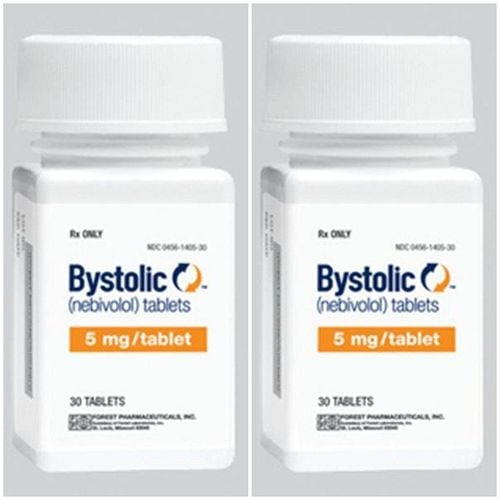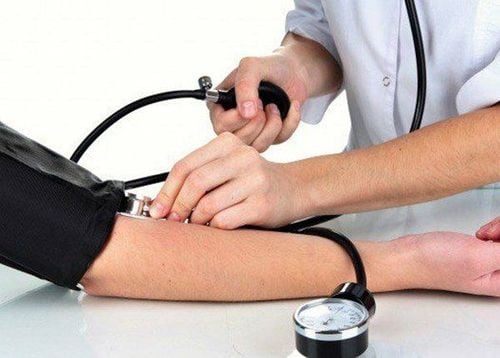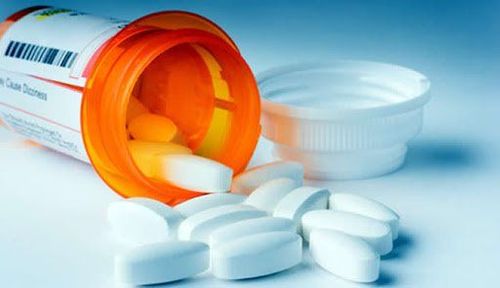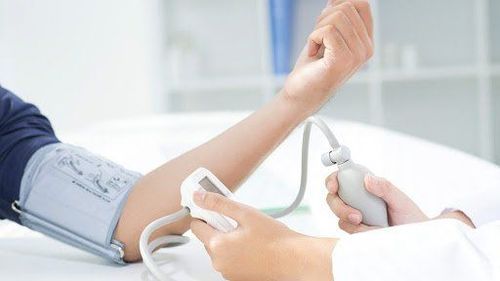This is an automatically translated article.
The article is professionally consulted by Master, Doctor Bui Tien Dat - Emergency Medicine - Cardiology - Emergency Resuscitation Department - Vinmec Hai Phong International General Hospital. The doctor has more than 12 years of experience in the field of emergency resuscitation - cardiology.1. What is hypertension?
Blood pressure is the force of blood pushing against the artery walls. Arteries carry blood from the heart to other parts of the body. Blood pressure is measured in two numbers: systolic pressure measures the pressure in the arteries when the heart beats; Diastolic blood pressure measures the pressure in the arteries when the heart rests between beats. Normal blood pressure is in the range of 120/80 mmHg.High blood pressure (also called hypertension) is a condition in which blood pressure is higher than normal. Doctors diagnose a patient with high blood pressure if the systolic blood pressure is ≥140 mmHg and/or the diastolic blood pressure is ≥90 mmHg. The higher the blood pressure level, the greater the risk of other health problems, such as heart disease, and brain stroke.
Trắc nghiệm: Huyết áp của bạn có đang thực sự tốt?
Huyết áp cao hay thấp đều ảnh hưởng đến tình trạng sức khỏe con người. Để biết tình trạng huyết áp của bạn có thực sự tốt không, hãy làm bài trắc nghiệm sau đây để đánh giá.2. How does exercise affect blood pressure?
The role of exercise in improving human health cannot be denied. So how does exercise affect blood pressure?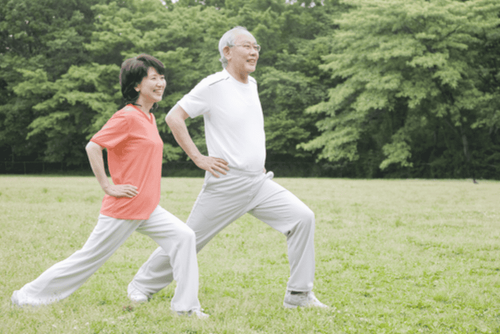
Various factors can affect the cardiovascular system during exercise. Among these factors, there are diet, medical conditions, and medications. In general, blood pressure should return to normal within a few hours of exercising.
2.1. Exercise for people at risk or with high blood pressure Exercise is generally safe for people who are at risk for high blood pressure or have high blood pressure. However, to be on the safe side, before exercising, contact your doctor for advice on effective exercise methods. Because, exercise can be related to:
Use of antihypertensive drugs Choose the right exercise activity Choose the time of the exercise regimen Also, to ensure good blood pressure control Patients should monitor their blood pressure before, during and after exercise.
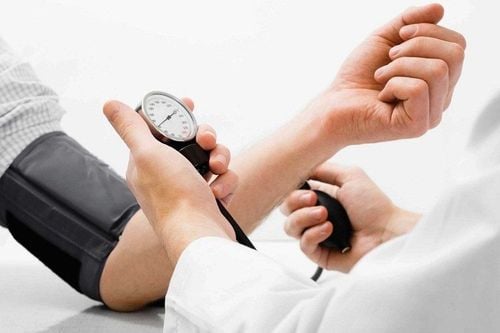
For people with low blood pressure, exercise can also be beneficial in treatment, because it helps improve blood circulation. However, if you have low blood pressure, you should choose moderate activities and do not change positions suddenly.
3. Complications of blood pressure when exercising
An increase or decrease in blood pressure during exercise can be a sign of a medical condition. Specifically:3.1. Blood pressure spikes Sudden rise in blood pressure during or after exercise can be a sign of:
People at risk for hypertension Have high blood pressure Exercise hypertension If your blood pressure rises If you have a fast reading of 180/120mmHg or higher, you need to be examined and supported by medical staff. If blood pressure is not monitored within this range, it can cause a heart attack or stroke.
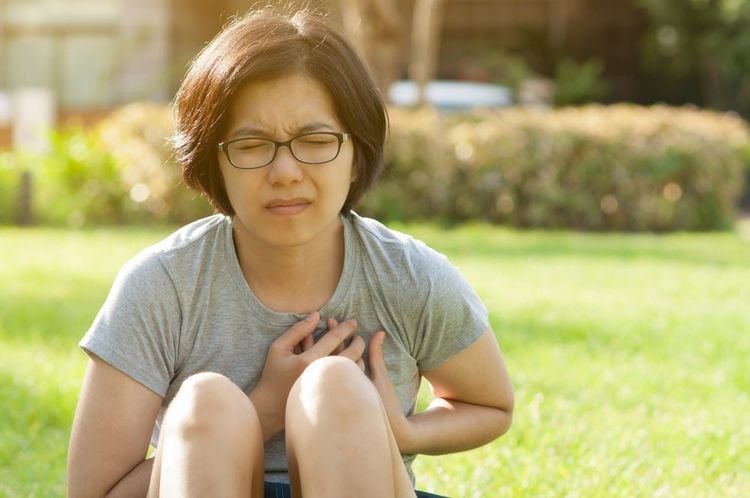
Therefore, you should talk to your doctor if you notice any of the following problems:
Blood pressure spikes after exercise. Blood pressure drops sharply after exercise. Blood pressure does not change during exercise. Systolic blood pressure exceeding 200 mmHg during or after exercise. Diastolic blood pressure changes significantly during exercise. Blood pressure readings exceeding 180/120mmHg during or after exercise. Blood pressure can rise or fall during exercise, but after rest it can return to normal. In the event that exercise spikes in blood pressure or uncontrollable drop in blood pressure could be a sign of a medical condition, you need to be examined and diagnosed to minimize the risk of possible complications. out.
Vinmec International General Hospital is the address for examination, treatment and prevention of diseases. When performing the examination process at Vinmec, customers will be welcomed and used modern facilities and machinery along with perfect medical services under the guidance and advice of doctors. Good doctors, well-trained both at home and abroad.
To protect cardiovascular health in general and detect early signs of cardiovascular disease, customers can sign up for the Cardiovascular Screening Package of Vinmec International General Hospital. The examination package helps to detect cardiovascular problems at the earliest through tests and modern imaging methods. The package is for all ages, genders and is especially essential for people with risk factors for cardiovascular disease.
Why should you choose Cardiovascular Screening Package at Vinmec International General Hospital?
Simple and quick procedure. Enthusiastic advice and support, reasonable and convenient examination process. Comprehensive facilities, including a system of clinics and consultations, blood collection rooms, dining rooms, waiting areas for customers... Professional, caring way of working.
Please dial HOTLINE for more information or register for an appointment HERE. Download MyVinmec app to make appointments faster and to manage your bookings easily.
References: cdc.gov, healthline.com




